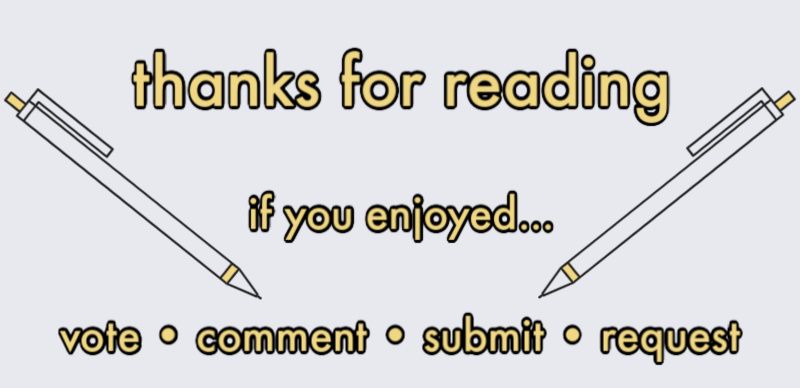Tip #5: Transforming a Paragraph
Author: avadel
Category: Writing Tips

Want to instantly take your writing up a notch? Here are three simple tricks that can turn a paragraph from alright to amazing!
1) Cut Out Filter Words
Little words like "he saw," "he thought," "he felt," and "he heard," can seem harmless. When you get rid of them, though, your writing will sound less like a story your friend is telling you and more like something that is really happening. These filter words, and others like them, put a barrier between the reader and the narration. Remove that barrier, and you have a much more immersive experience.
Filter Example: John saw the gleaming castle in the distance.
Filter Removed: The castle gleamed in the distance.
If we are in John's POV, presumably anything that the narration mentions is what he is seeing, feeling, hearing, etc. Not only is the first example wordier, it's less direct and puts emphasis on the weaker verb ("saw"). The second example reads like something you, the reader, can see; the first example reads like something someone far away and unconnected with you sees.
For more information about filter words and a more complete list of them, check out this article:
Of course, there's an exception to every rule, but in general, removing filter words tightens up your paragraph and better connects your reader to it.
2) Duck Adverbs When Possible
Ah, those insidious little 'ly' words. If you're a grammar nerd or have played MadLibs recently, you're well-acquainted with this part of speech. If not, let's just do a quick recap.
Recap: An adverb is any word that describes a verb or an adjective. It adds to the verb, or works as an "adjective for adjectives." For instance, "he spoke harshly" or "she was incredibly pretty." In the first, "harshly" describes the verb "spoke." In the second, "incredibly" describes the adjective "pretty." Most adverbs end in "ly," but not all. "Very" and "just" are a couple of the sneakier ones.
Here's a good link if you want to find out more:
The Tip: So, now that we're all on the same page, let's get to the meat of the material. Adverbs often make sentences clunkier or weaker than necessary, so when possible, it's best to avoid them.
Weak Words: Most of the time, we reach for adverbs because the word that we're using isn't strong enough. So, instead of using an adverb + verb combo, try picking a punchier verb!
Adverb to Strengthen Example 1: John hungrily ate the food.
Stronger Verb Example 1: John scarfed down the food.
Adverb to Strengthen Example 2: John ran quickly across the road.
Stronger Verb Example 2: John dashed across the road.
These stronger verbs add more to the sentence than the often weak, awkward, and overused adverbs do. If you need something be stronger, pull out your handy thesaurus (or Google) and find a better word! Sometimes, you can even cut the word altogether. For instance, in Example 2, "John ran across the road" doesn't mean anything less than "John ran quickly across the road." "Quickly" there is an unnecessary word.
Waffle Words: Other times, we use adverbs because we think a word is too strong, and we're trying to tone it down. However, we recommend not waffling. Be bold in your language choice! It'll stick with your readers more, and using qualifiers adds unnecessary words to your sentence.
Adverb to Weaken Example: John was slightly displeased by the suggestion.
Adverb Removed: John was displeased by the suggestion.
The "slightly" here doesn't appear to change the meaning of the sentence. If a word doesn't add any meaning to your sentence, you're almost always best to cut it! Sometimes these 'waffle words' are necessary, but be careful. They are often not as important as we think to the sentence's meaning. Always ask yourself how the sentence would sound if the adverb disappeared. Does it mean the same thing? If so, cut it. If not, you still might be able to replace your verb with something weaker or rewrite the sentence to more eloquently make your point. Check before you move on in your editing process. (=
Dealing with adjective adverbs is much the same. Consider the situation, cut any unnecessary words, and strengthen/weaken the adjectives you're not confident in so that they mean what you want.
3) Be Active, Not Passive!
Active voice is when the subject of your sentence is the one performing the action. Passive voice is when the subject of your sentence is being acted on. If that sounds confusing, don't worry! It's easier in practice than in definition. (=
Active Voice Example: John threw the ball.
Passive Voice Example: The ball was thrown by John.
Passive voice is bad in most cases because it puts emphasis on a noun other than the subject of the sentence. This causes the sentence to sound weaker than it would in active voice. Passive voice also tends to be wordier (notice the four words in the AV example versus the six words in the PV example).
It's usually pretty easy to switch a sentence written in passive voice to active. The key is to figure out who is doing the action.
Passive Voice Example: The crown will be brought to the king tomorrow.
Who is bringing the crown? If you know the answer, just insert that person and flip the sentence around.
Fix 1) Add Subject: The page will bring the crown to the king tomorrow.
If you don't know or don't like the emphasis change, you might be able to rearrange the sentence.
Fix 2) Rearrange Sentence: Tomorrow, the crown will be in the king's hands.
Here, you can keep the crown as the subject of the sentence and still change the sentence to active voice.
On occasion, passive voice reads better or is necessary because you don't know/don't want to reveal who is acting and can't find a better way to rearrange the sentence. There is always a way, though, so make sure to pursue all options before settling on passivity. (;
Putting It Into Practice
Let's do an example! We'll write a paragraph below. In the comments, leave the way that you would fix it, keeping these three guidelines in mind. If you do, we'll give our feedback! At the end of the chapter, we'll have a way we might fix it as well. (=
Your Paragraph to Rescue:
"Jenny quickly looked behind her and saw the beast running clumsily toward her. She hastily climbed into her car, but it couldn't be started. She felt very afraid and wanted to cry. She turned the key again and heard the footsteps of the creature stop outside the car. Suddenly, the roof was torn off, and she screamed."
Place your fix here:


One Suggested Fix:
"Jenny glanced behind her. The beast lumbered toward her. She threw herself into her car but couldn't get it to start. She was terrified, and tears burned her eyes. She turned the key again as the footsteps of the creature stopped outside the car. The monster tore the roof off, and she screamed."
What We Did:
• "quickly looked" -> "glanced": swapped a verb + adverb for a stronger/more precise verb
• "saw the beast running clumsily" -> "The beast lumbered": removed a filter (saw) and swapped a verb + adverb for a stronger verb
• "hastily climbed" -> "threw herself": swapped a verb + adverb for a stronger verb phrase
• "it couldn't be started" -> "[she] couldn't get it to start": passive voice to active voice
• "She felt very afraid" -> "She was terrified": removed filter (felt) and swapped an adjective + adverb for a stronger adjective
• "[she] wanted to cry" -> "tears burned her eyes": removed a filter (wanted) by rephrasing
• "and heard the footsteps" -> "as the footsteps": removed a filter (heard)
• "Suddenly, the" -> "The": removed an adverb because it didn't change the meaning of the sentence
• "the roof was torn off" -> "The monster tore the roof off": passive voice to active voice
In the example above, all we did was use those three tips. However, obviously you could go beyond that as you edit (and we encourage you to do so). Here's another rewrite that does all of the things above, but also puts a little more pizzazz into it.
Take It Farther:
"Jenny shot a glance behind her. The beast lumbered toward her, gaining momentum with each step. She threw herself into the car, but it wouldn't start. Panic gripped her, and tears burned her eyes. She twisted the key again as the footsteps of the creature boomed to a stop outside. The car roof flew off with a deafening crunch, and she screamed."
Have a better rewrite now? Leave it here!:

Want to submit your own Tip?
Comment in this book and email your entry to [email protected]. We'll review it, and if we think it's well-written and helpful to the Wattpad community, we'll post it! Your entry may be something you have written previously, even if it is published elsewhere. (=
Have a Request?
Comment on the first chapter with the topic you'd like to see. Your suggestion might just turn into an article!

Bạn đang đọc truyện trên: AzTruyen.Top